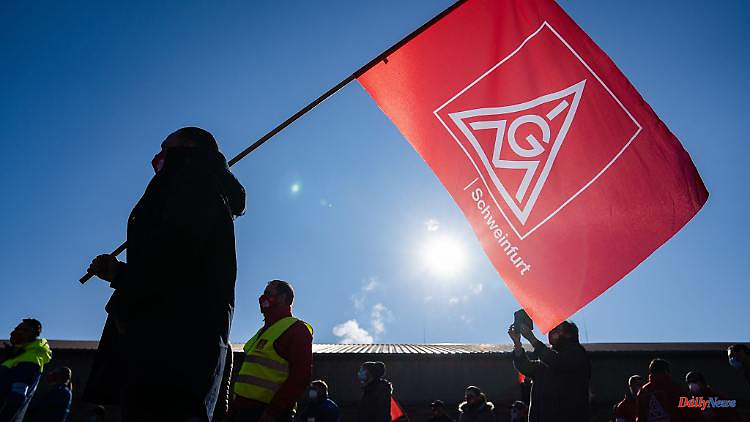Düsseldorf (dpa/lnw) - In the wage dispute in the Northwest German iron and steel industry, IG Metall threatened to expand the warning strikes before the third round of negotiations on Friday. "If the offer of the one-time payment remains, the steel workers are ready to continue the industrial action and, if necessary, to expand it noticeably," said IG Metall NRW district manager and negotiator Knut Giesler on Thursday, according to a statement. The union expects "constructive behavior" from employers at the negotiating table. The collective bargaining parties will meet in Düsseldorf on Friday afternoon.
According to IG Metall, around 3,000 Thyssenkrupp Steel employees in Duisburg took part in a rally with IG Metall chairman Jörg Hofmann on Thursday. "The steel industry is currently doing better than many other sectors in Germany," said Hofmann. On the other hand, the employees were weighed down by enormous inflation. "It is therefore right to increase incomes, and to do so permanently." According to the union, around 16,000 employees in 50 companies have taken part in the warning strikes since June 1st.
The tariff area of the north-west German steel industry primarily includes North Rhine-Westphalia, Lower Saxony and Bremen. According to IG Metall, 68,000 people are employed in the industry there. The union demands, among other things, 8.2 percent more wages. The employers had offered 2100 euros as a one-off payment in the first round of negotiations. In the event that no agreement is reached in the third round, negotiations are to continue on June 14. The third round is scheduled for June 13 in the East German steel industry, which employs around 8,000 people.












